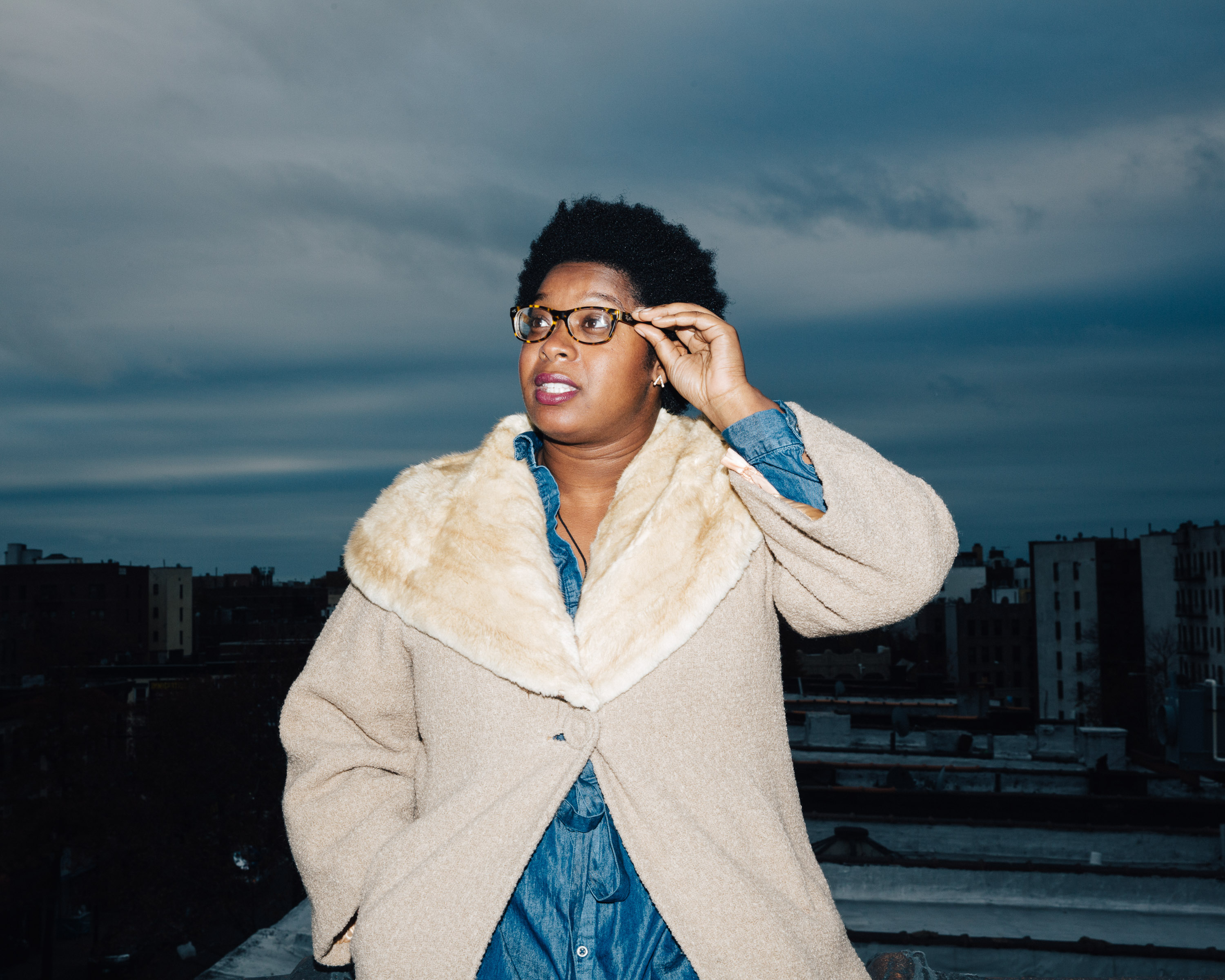
- Interview by Tammi Heneveld December 16, 2015
- Photography by Eric Ryan Anderson
Ashley C. Ford
- writer
Ashley C. Ford is a Brooklyn-based writer whose work addresses social issues like race, gender, and sexuality. She writes for web and print publications, including ELLE, the Guardian, Slate, BuzzFeed, Design*Sponge, The Rumpus, and others. She is currently writing a memoir about growing up with an incarcerated parent and is co-editing an anthology with fellow writer, Roxane Gay, titled Not That Bad: Dispatches From Rape Culture.
Tell me about your path to what you’re doing now. What I’m doing now is finding ways to tell stories that allow me to connect to others. That all started when I was about four years old and went to go live with my grandmother. My mom was having a hard time, so she and my brother stayed in Fort Wayne, Indiana, while my grandmother took me to Columbia, Missouri, to stay with her and my great-grandfather on a little farm. That was the first place I felt like my imagination had no bounds.
Everything I wanted to do had an element of storytelling to it. My grandma taught me how to read so I could understand what stories were and how to tell them. She used the Bible and celebrity tabloids to do so, and I once wrote in an essay that, for a long time, I thought Jesus looked like Billy Ray Cyrus. (laughing) I fell in love with storytelling and entertained myself and my grandmother with made-up stories. When I was in high school, my favorite classes were English and history, but I also liked chemistry and biology, because I felt like they told stories about the body and chemical reactions.
It took me a while to figure out what I wanted to do. When I attended college at Ball State University in Muncie, Indiana, I changed my major six times. Eventually, I realized every major I’d chosen involved storytelling and connecting to people. When I finally gave up the ghost and became an English major, I felt like I was home. I was pragmatic and told myself I’d never be able to do anything like creative writing for a living, but I knew I’d always have the option of writing on the side.
After graduation, I desperately tried to pursue a “regular” career, but I was shit at any job that didn’t involve writing. I could be asked to do the easiest tasks in the world, but I always got bored, depressed, or resentful because I would have rather been writing. It’s interesting when people say that Millenials can’t accept working a job that doesn’t align with what they’re passionate about. I would love to be the kind of person who could have a day job that was unrelated to the arts and then come home and work on a personal, artistic project! If that was the case, I’d be a lot better off financially and wouldn’t have felt like such a failure for so long. For many years, I felt like a big lump of wasted potential.
Everything changed in November of 2012. I lived in Indianapolis with two roommates, worked three part-time jobs, and had almost no money. I felt so deeply depressed that at night I came home, crawled into bed still wearing my clothes, slept, and woke up when it was time to go back to work. It was terrible.
One day, I went to a conference for the Association of Writers & Writer’s Programs (AWP). Back then, I kept a little journal with me at all times. I know it sounds woo-woo, but it’s powerful for me to write my intentions down—it has traditionally helped me keep my focus on exactly what I want from this life. In the journal, I wrote a promise to myself: “You will not be doing this work, at this place, in two months.” Shortly after that, I was fired from all three of my part-time jobs at the same time when my car broke down—two of them because I needed the car to get there, and the other one because I needed the car in order to do the job itself.
During that time, my roommates said they weren’t going to kick me out or anything, which thankfully gave me time to try to get back on my feet. I was truly broke. I spent five dollars a week on groceries, and ate half-sandwiches for meals. I lived across the street from a library, so I walked over there every day to apply for jobs and read books like Brené Brown’s The Gifts of Imperfection—basically anything I could get my hands on about not giving up on my life. (laughing) When I began reading those books, I decided the life I wanted was whichever one would allow me the means and the room to be creative. I thought to myself, “Well, if I have nothing to lose, then I also have nothing in my way. So what the hell do I want?” All I could think was, “I want to write.”
I started making a list in my head of all the dream publications I wanted to write for. At that point, I would have been thrilled if I could have written for something local, but good, like Indianapolis Monthly Magazine. I started to read books about freelancing and writing, and I decided to focus all of my energy on becoming a professional writer.
Soon after, I took a job as a secretary for a firm called Pivot Marketing, and it was amazing. My boss, Jenn Hoffman, was super supportive of my writing and made my schedule flexible enough to allow me to attend writing events and seminars. She was like a patron for me during the year that I worked there.
Pivot was the first place I worked where my creative ideas and opinions were highly valued. That helped build up my confidence to start sending out writing samples to my dream publications, one of which was BuzzFeed. I started having a couple online conversations with people who worked there, and BuzzFeed offered me a job in New York City in 2014.
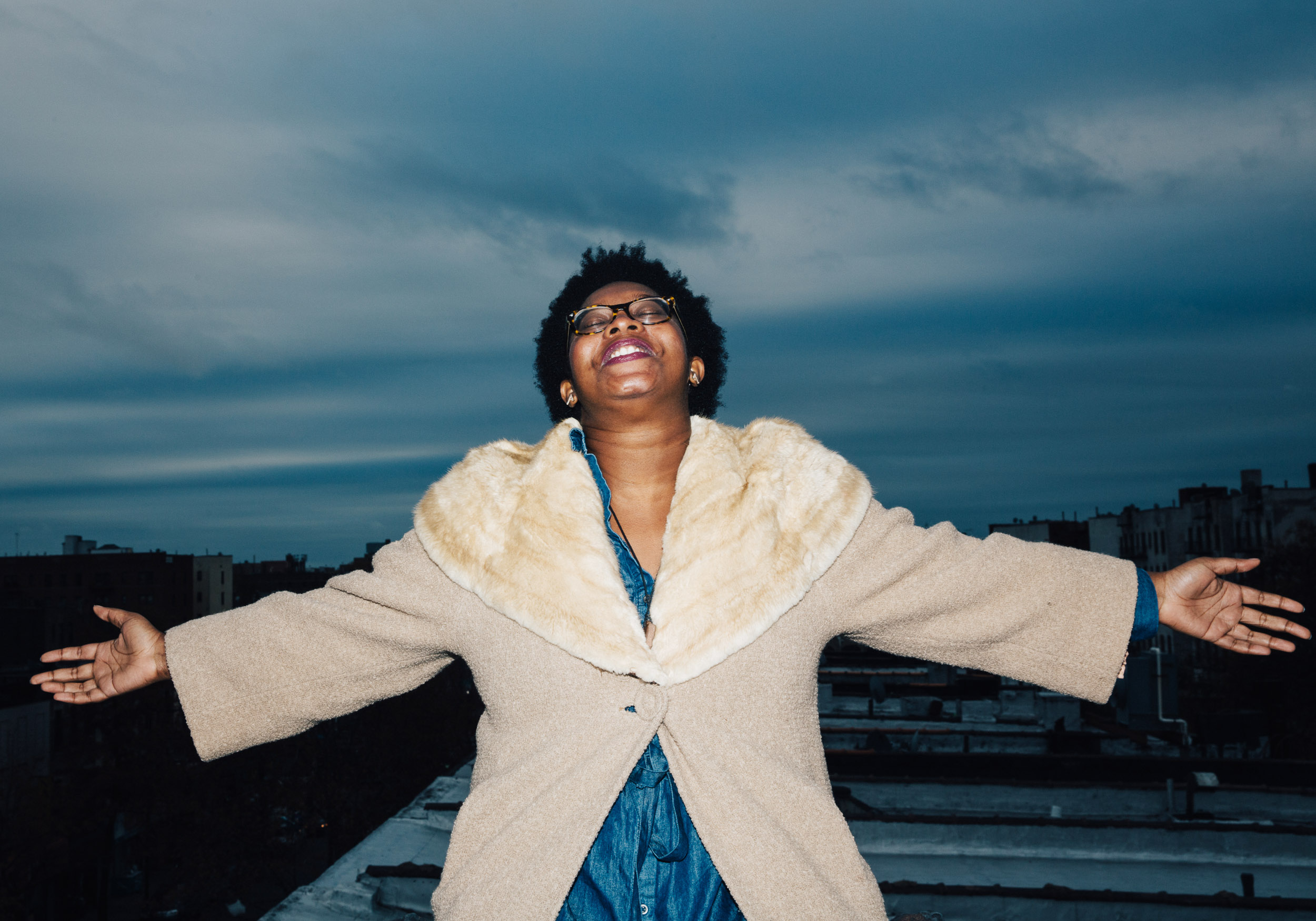
“When I finally gave up the ghost and became an English major, I felt like I was home. I was pragmatic and told myself I’d never be able to do anything like creative writing for a living, but I knew I’d always have the option of writing on the side.”
It sounds like you had a creative childhood. Did you grow up in a family that believed doing something creative wasn’t practical if you want to make a living? I’ve had some ideological differences with my family, but my mother never told her children we couldn’t do something. I think that part of the reason I changed my major six times in college was because my mother didn’t push me to make decisions based on what my family wanted. She told me: “Ashley, you’re the only person who has to wake up in your skin and live your life every day. If you want me to tell you how to live, what job or career to have, or what to do for the rest of your life, I can’t do that. I might have an idea, but I want you to be happy more than I want you to be safe.” And my father, who is in prison and has been my whole life, regularly sent me letters with flowery and dreamy sentiments like, “You can do anything and be anything—you just have to do the work.”
I come from a family that values hard work, and even though a lot of us are working-class or barely in the middle class, no one ever said, “You’d better find something practical to do.” My grandma wanted me to be a nurse, but mostly because her mother was a nurse. That was a goal of mine for a while, because I love science and people, and I’m not grossed out by anything. Ultimately, writing was what I wanted more than anything else, but regardless of what I chose to do, I always planned to give it my best shot.
Was changing your major so many times a result of being interested in a wide variety of subjects, or were you concerned about supporting yourself after college? Yes to both of those. I can become interested in a million different things, so focusing on one thing at a time is a challenge for me. I also come from a working-class family, so I did not have a safety net: there wasn’t going to be any moving home after college. None of my family members were going to say, “Here’s a little money to help get you started,” after I graduated.
I knew I had to figure out how to take care of myself, and that mentality appeared in my relationships, too. In the past, I had dated men who were also artists. Me being who I am, I decided that they would get to live out their passions and only bring in a little money while I was the one who sacrificed my passions to be the “stable” one with the career that we both survived on. To be fair, my boyfriends never asked me to do that; it was something I convinced myself I needed to do. I tend to get real pragmatic in relationships and think, “I can’t be a writer if you’re a comedian or an actor, so what are we going to do? I’m not living in a car.” (laughing)
Now, with my boyfriend, Kelly, not only is that not necessary, but I think he would have left me if I said, “I’m not going to be a writer anymore because I’m with you now.” That never would have flown with him, because he’s my biggest supporter.
Was working at Pivot Marketing the “Aha!” moment that made you realize that writing was what you wanted to focus on? There were a series of moments in November 2012 and throughout 2013. The minute I allowed myself to admit that this was the life I wanted, that I was prepared for, and that I would work hard to sustain, everything started to fall into place.
There were a series of moments that seemed to set me up to become a professional writer: everything from my car breaking down causing me to lose my jobs to working at Pivot for a boss who cared about my writing, which was big. When I interviewed for the job, Jenn told me that part of the reason she hired me was because she had read one of my essays and wanted real artists working for her. To be validated in that way, to be given a more than livable wage—especially in Indiana—to have the freedom to try different things, and to be part of that organization was a huge “Aha!” moment. I realized that if my job at Pivot wasn’t working for me, then I couldn’t think of another job outside of writing that would satisfy me. I did not want to leave Pivot, but I was not satisfied creatively. I needed more, and I wanted more.
Would you consider Jenn, your boss at Pivot, to be a mentor to you, and have you had other mentors? Oh, absolutely. I would consider Jenn to be a mentor, along with the editor of Indianapolis Monthly Magazine, Amanda Heckert. They are both ambitious, hardworking, beautiful, artistic, and purposeful women who support other women. They are business-minded in a way that makes them say what they mean, mean what they say, and know what they’re worth. Being around Jenn and Amanda presented me with beautiful visions of everything a woman can be if she stops waiting for permission. There was a time when I would have said no to a job offer from BuzzFeed because I felt like I hadn’t done enough yet, and I wouldn’t have given myself permission to go for it. But after a year of knowing Jenn and Amanda, I started to ask, “What would they do?” What they would do is go for it.
Another important mentor to me is Roxane Gay. She and I connected in 2010, and it was life-changing. I thought that if I could write anything half as good as anything she has ever written, I could die happy. She was a successful black woman writer in the Midwest, which was incredible to me. When I was in college, Roxane was teaching at Eastern Illinois University, and a friend of mine, Chris Nugent, said he invited her to read at his reading series in Indianapolis. My writer friends and I—we called ourselves the Chick Lits—all piled into our cars and caravanned to Indianapolis to see her. This was before Bad Feminist and An Untamed State, and I don’t even think her first book, Ayiti, was out yet. When we got there, we could barely speak to her because we were so nervous, but we eventually calmed down and all had dinner together. Over time, Roxane became a mentor to me, and I asked for her feedback on writing or professional advice, which I definitely still do. That gradually grew into a friendship, and now we talk to each other about all kinds of things. I definitely consider her to be a mentor and, at this point, family.
You and Roxane are working on a book together. Can you tell me a little about that? She and I are currently co-editing an anthology called Not That Bad: Dispatches From Rape Culture. We just finished accepting submissions, and now we’re going to do a deep dive into the essays we received and start sending out acceptances early next year.
There are so many stories from people who deal with sexual assault, abuse, and harassment, and the effects of rape culture. So often, those stories are told by people other than the victims or survivors of such crimes. I’m ecstatic to give a voice to these women and men and give them the opportunity to own their experiences and use their writing in a way that connects with people.
That’s great. You’re also writing a memoir about growing up with an incarcerated parent. Yes. My father, who has been very loving in certain ways via letters and things he has sent me over the years, has been in prison since I was six months old. For a long time, he was my preferred parent: I was very close to him and felt like we were similar in a lot of ways, more so than my mother and I.
I was sexually assaulted when I was 13 years old. About six months later, for the first time in my life, I found out that my father was in prison for sexual assault. I suddenly found myself having to deal with a lot of conflicting emotions: having been sexually assaulted, having a father in prison for sexual assault, dealing with whether or not I was going to tell someone about what happened to me, being asked to keep my father’s conviction secret from my brother, and deciding whether or not I was still allowed to love my father after finding out what he had done. There were a lot of very complicated emotions at what is probably the most complicated, emotional, and hormonal time in a person’s life.
It was strange. I was aware that it was not normal, that it was not something other people my age were dealing with—as far as I knew. But it was also just happening to me. At that age, you don’t really have the forethought to stop and think, “Why do I feel like this?” Or, “Why is this happening?” You just know that these feelings and thoughts have shown up, that this knowledge and this violation of your body have been thrust upon you. They are yours now. And you’re terrified to talk about it, because what if someone says, “I don’t identify with that, I don’t want to hear about it, I don’t want to know about it; and as a matter of fact, I think you should just pretend that it didn’t happen.” It’s extremely complicated.
I’m writing about my experiences and the relationship I have with my father in a way that doesn’t fully explain the story. I don’t want to explain everything. It’s more about putting the reader in my head. Even if I didn’t know how to deal with those feelings and complications at that time, I viscerally remember the thoughts going through my mind and feelings of confusion, all while not knowing if I could accept any other reality. I wasn’t ready to think more complexly about the situation during that time, and I want to convey that in the book.
“…talking about things takes all of the power out of them. Brené Brown says, ‘Shame cannot survive being spoken,’ but it thrives in the dark. By speaking up, I’ve learned that a lot of what I’ve experienced isn’t unique to me—no one is that fucking special.”
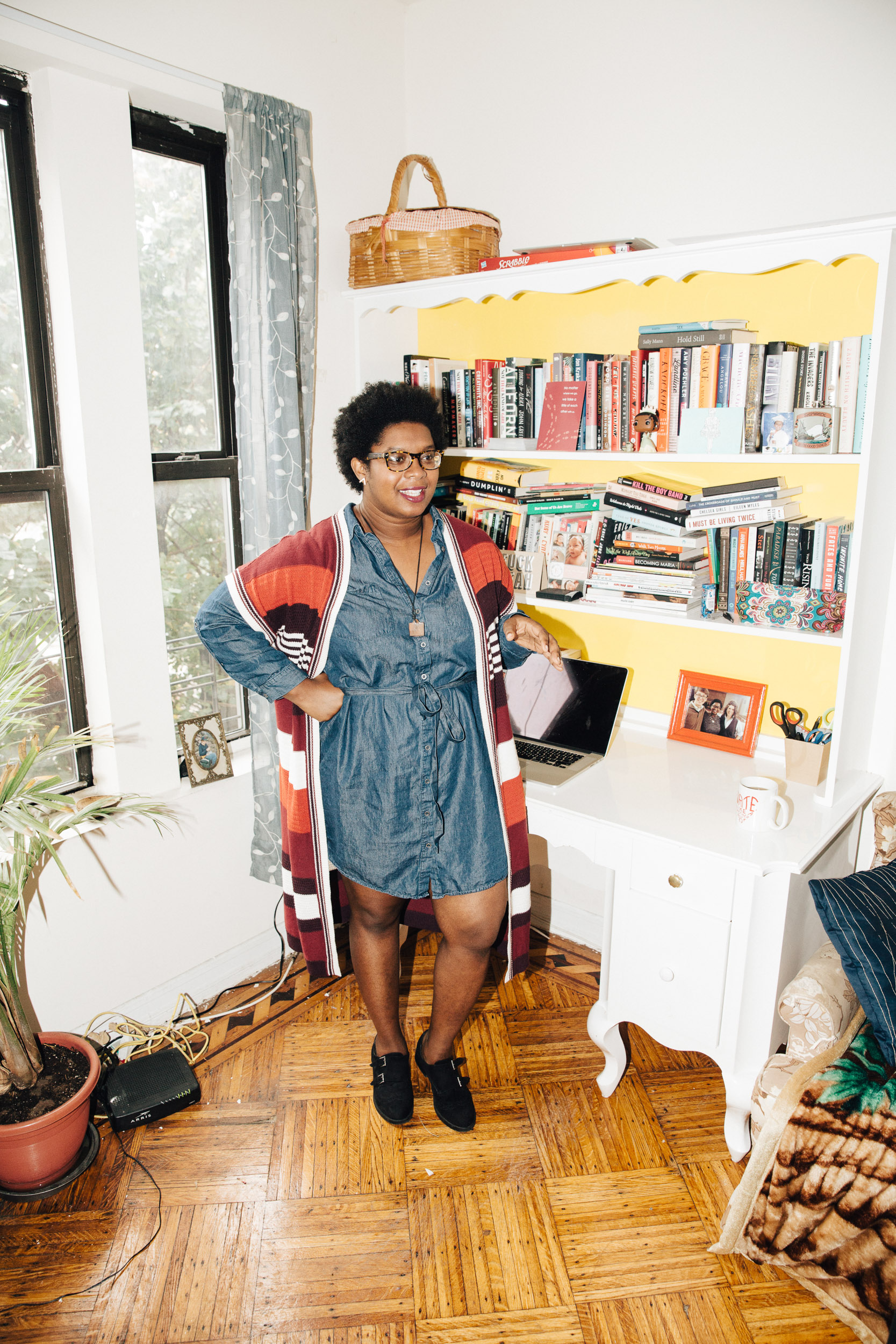
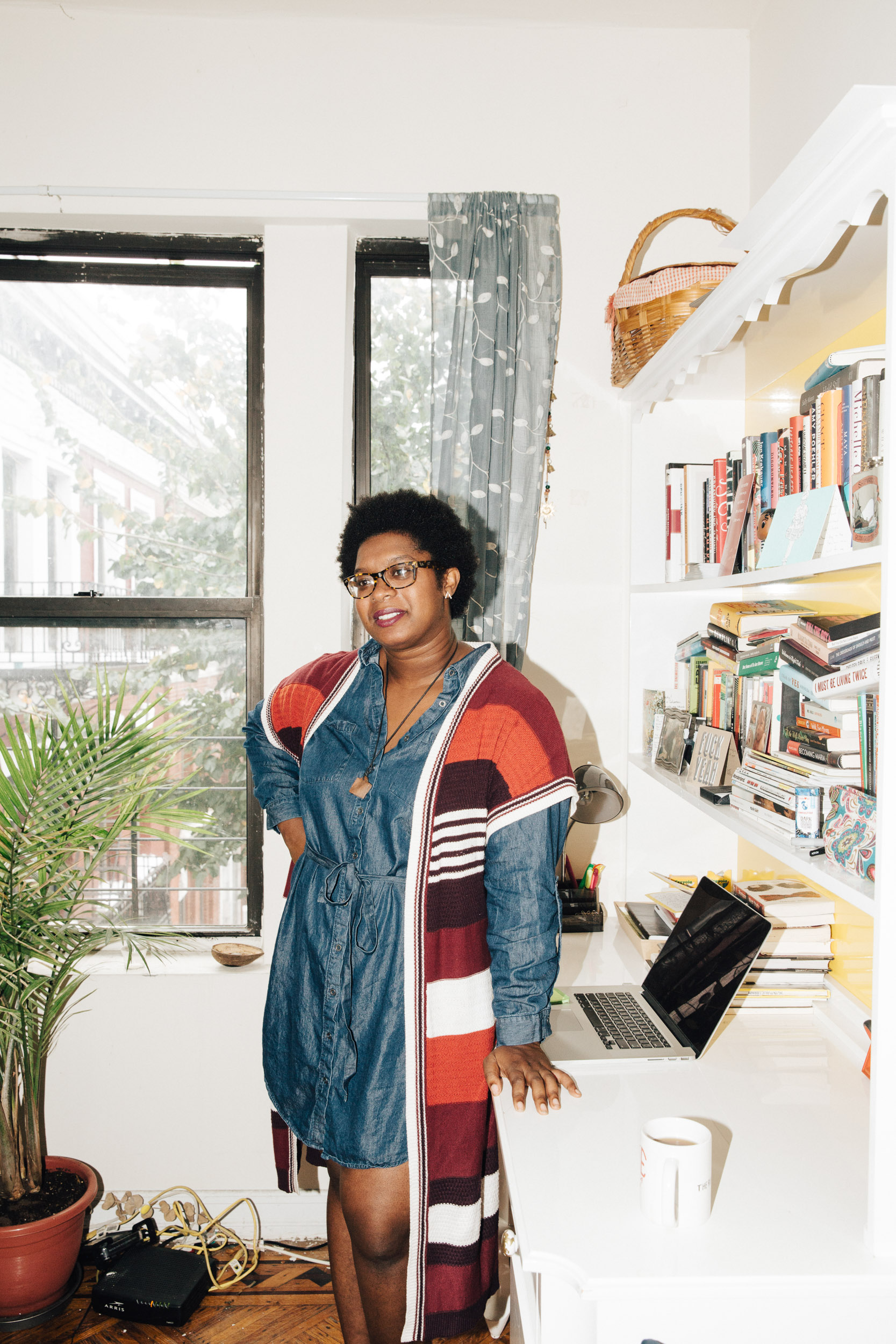
Giving a voice to your story and letting others know that they’re not alone—and that there is someone else out there who understands them—can be incredibly therapeutic. Absolutely. I would have given anything to read a book about a young girl who had a parent in prison whom she still had a relationship with. Being exposed to other people with that dynamic at all would have been mind-blowing for me. Finding a book that features a parent in prison almost never happens; and when it does, it’s used to explain why that parent is no longer in their kid’s life or why they have no connection or communication. To this day, I still haven’t read a book where a kid has a parent in prison whom they still have a relationship with. The only book that comes close is White Oleander by Janet Fitch, but the girl and her mother in that story already have a relationship before her mother goes to prison. It was hard for me to reconcile what my father had done with who he was, but I have no experience of him being anything other than loving, encouraging, and empowering towards me.
Was there a point when you decided to take a big risk to move forward? Moving to New York City to take the job at BuzzFeed was a big risk. I actually moved here on crutches, about two weeks after I tore my ACL while living in Indiana. Before that happened, I had hesitations, even though I had signed the contracts and was definitely going. I thought, “Maybe I won’t go or maybe something will happen or maybe I’ll decide that life here in Indiana is the only life I want.” I couldn’t decide. But when I tore my ACL, my first thought was, “This is not an excuse to stay here. If I do, I’ll regret it.” That was the first time it was clear to me that I needed to move forward.
I moved to New York with very little money—probably less than you’re picturing. After I couch-hopped for a little while, I found the apartment I’m living in now and started my job at BuzzFeed. It was all terrifying. I was out of my comfort zone. I had lived in Indiana for almost my entire life—I still consider it home—and making the move meant taking a lot of risks all at once. While in Indiana, I was in a long-distance relationship with Kelly while he was living in Seattle. We had planned for me to work a little longer at Pivot before moving to Seattle to be with him, but when this job came up, he told me, “That’s an amazing opportunity and you can’t pass it up. Of course you’re going to New York.” I’ve now lived here for a year and a half.
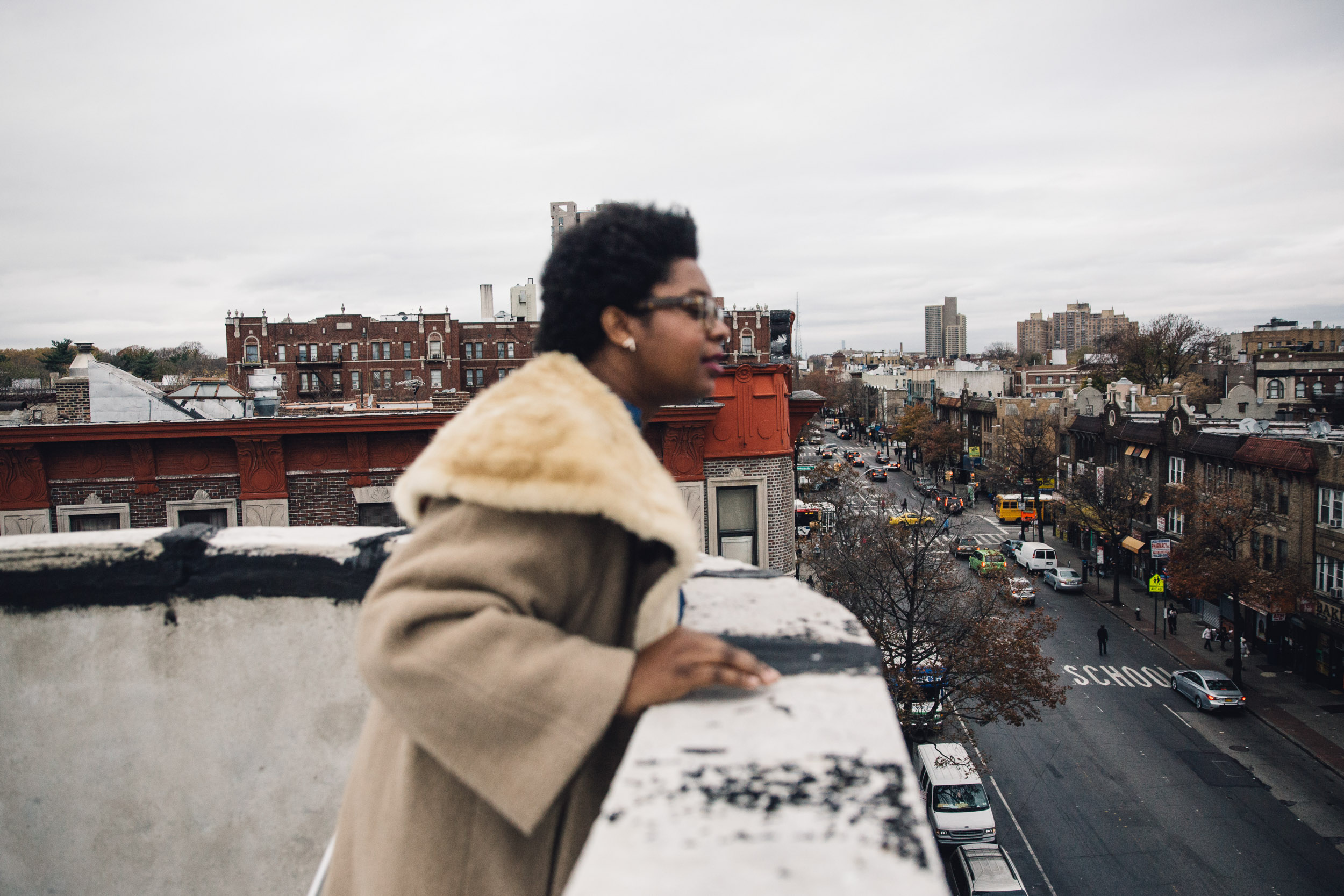
Are your family and friends supportive of your work? Yes, they are. My mom has given me two consistent messages about my writing. The first is, “I wish you’d write about happier things.” The other is, “Don’t let anybody stop you from doing what you’re doing, not even me. Even though what you’re writing about makes me uncomfortable, I still understand that it’s important.” That’s amazing to hear, and it makes me very happy.
My siblings think it’s cool that I’m a writer. I’m the oldest of four, and they all tell their friends, “My sister writes at BuzzFeed and lives in Brooklyn!” Here, that just means that you live in Brooklyn. (laughing) But in Fort Wayne, Indiana, it is a big deal that I live in Brooklyn and write for a living. I was in college before I knew this was a job. Despite the fact that I consumed media, I didn’t realize that there were people whose job it was to create it.
My family is wildly supportive and loving, even though it took them a long time to realize that I have a real job. A lot of them are still worried that I’m going to write about them, but that’s okay.
Speaking of that, how did your parents react when you told them you’re writing a memoir? My mom wasn’t happy about it initially. There is so much that happened to me during my childhood, and to her as a young woman, that she would like to sweep under the rug forever. My mom worries about what it’ll mean for the rest of my life if people know these things about me, but I believe she’s more worried about what people will think about her. Sometimes I have to explain to her that our stories aren’t just ours.
She and I have different philosophies: I think she believes that talking about things gives them the power to hurt you or be used against you. I believe that talking about things takes all of the power out of them. Brené Brown says, “Shame cannot survive being spoken,” but it thrives in the dark. By speaking up, I’ve learned that a lot of what I’ve experienced isn’t unique to me—no one is that fucking special. I’ve also found and connected with a whole community of people with similar stories. I didn’t think I was the only person who had ever been sexually assaulted, but when I decided to talk about it, I was amazed to see so many other people say, “Me too.” And when I decided to talk about my father being in prison, I found out that I had friends and acquaintances who also had incarcerated parents.
When I talked to my father about writing the book almost three years ago, he told me, “I’m not going to stop you from writing this book and telling this story, because I’ve taken so much from you. This is the one thing I can give you.” I’m not here to villainize or deify anybody. I just want this to be a story that reads with the same truth and complexity it had when I lived it.
“I write about heavy, serious issues because we often forget that there are real bodies and souls behind them…The truth is that I don’t know shit, but I can write stories that will hopefully convey what I’ve seen and why I believe certain things to be true.”
Much of your writing focuses on cultural and social issues. Do you feel a responsibility to contribute to something bigger than yourself through your work? Writing has enabled me to think about contributing in a more complex way. I was involved with AmeriCorps and Peace Corps, and I’ve been a lifelong volunteer. I loved those, but it wasn’t me giving the world the best of myself. The best of myself is in my writing, and I want to tell good stories that punch people in the gut.
I write about heavy, serious issues because we often forget that there are real bodies and souls behind them. There are voices behind these stories, and I’m just part of a chorus. In the past, many of the characters in my fiction writing had a core element of myself in them that I used to talk about my personal shit, because I was terrified about addressing those issues in a real way. Eventually, I understood the power of standing up and saying, “This happened to me,” or, “This is something I’ve observed,” or, “This is how I think humans work.” The truth is that I don’t know shit, but I can write stories that will hopefully convey what I’ve seen and why I believe certain things to be true.
Now that you’re a professional writer, would you say that you’re creatively satisfied? No, I wouldn’t. I say that because, to be honest, I think I should seek out bigger challenges. I’ve become a little too comfortable, and I have been dragging my feet on pursuing new prospects out of fear and insecurity. Maybe I’ll be creatively satisfied when I get over myself. (laughing)
One of the creative challenges that I wanted to face this year was collaboration. Doing those projects has helped bring me some creative satisfaction, but it’s time for me to start allowing myself to dream a bigger dream and go after it with everything I have. Being creatively satisfied isn’t so much a destination as it is a process—the pursuit is satisfying. For me, that means constantly challenging myself.
In that case, what do you want to work on or explore in the next few years? I’d really like to branch out into screenwriting, and I have been playing with photography.
I would also like to teach more. I just taught my first writing class through Catapult Stories, and the initial session was so invigorating. I left feeling like I was on top of the world, so I’d definitely like to explore that more. I also want to play with getting in front of the camera and maybe doing some audio work. I feel like audio would be a good a transition toward being in front of a camera.
“The hardest thing to get over when you’re trying to live a dream is the possibility that you might fail or that it might not be for you. But the truth is, that’s not the worst thing in the world. If you fail or find out that you don’t like something, then you just got closer to finding out what you’re truly meant for.”
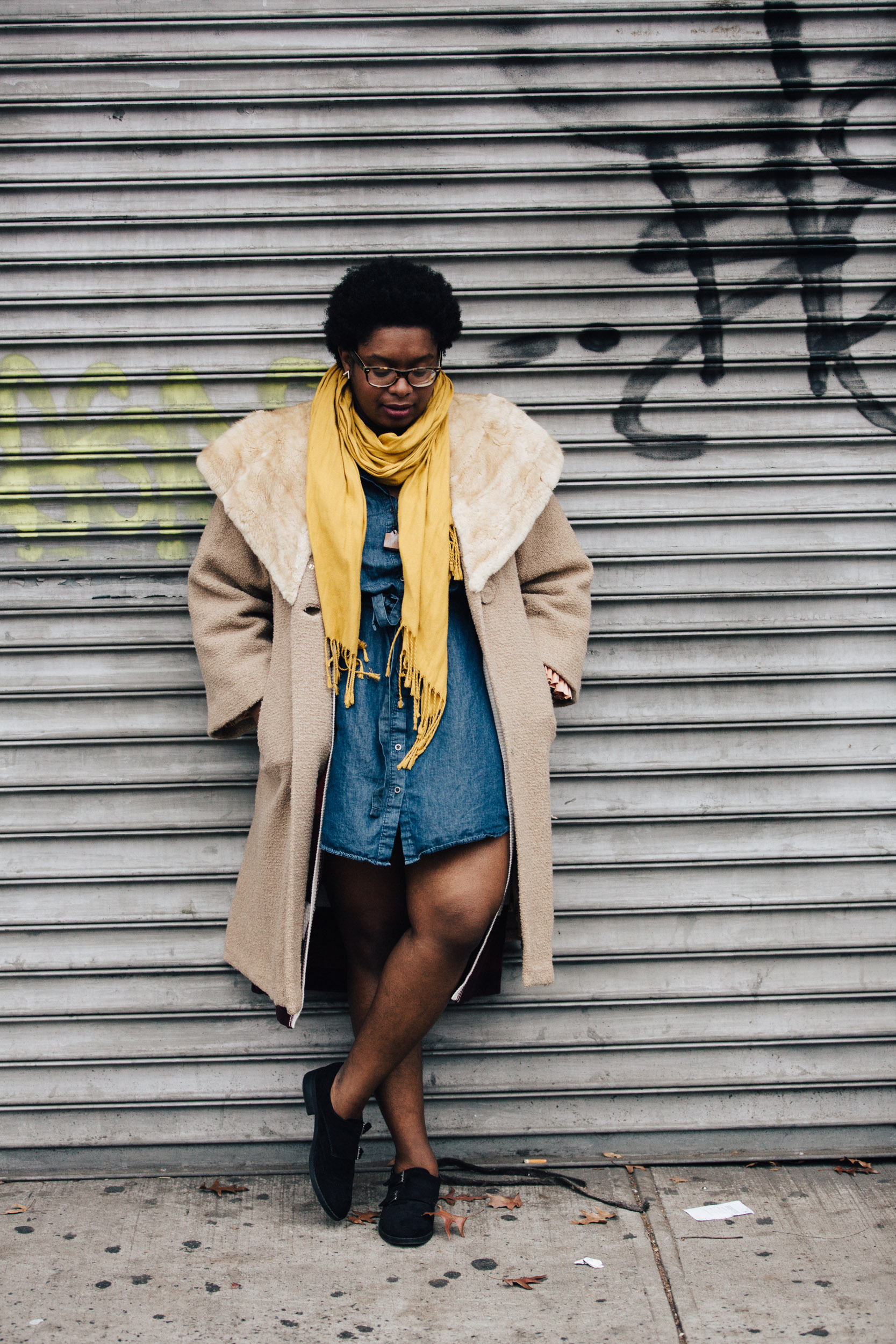
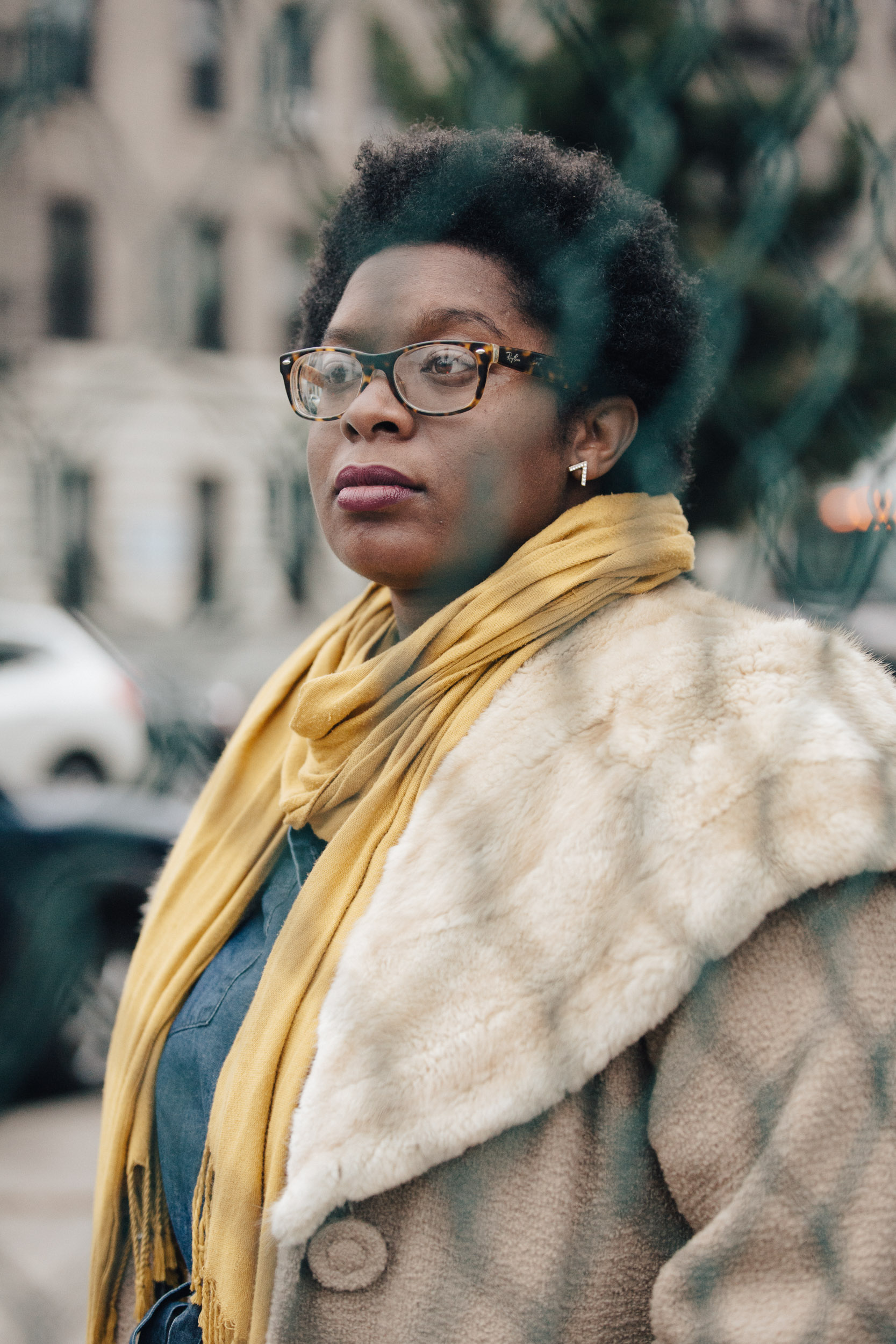
What advice do you have to offer someone who is just starting out? The biggest piece of advice I would give to aspiring writers is: if you’re writing, then you’re a writer. You don’t need anybody’s permission to start living your dream; the only person’s permission you need is your own. It’s your decision to make, so stop outsourcing it to other people.
I would also tell people just starting out to figure out what they want to do or are interested in and start talking about it a lot. If there’s nobody in your everyday life to talk to about it, go online and find people to talk to. Some people downplay the importance of talking about what they want to pursue, but I disagree with that so hard it’s not even funny because it normalizes it. If you’re a writer, for instance, and you talk to people who are writing books, essays, or short stories, then suddenly the idea of doing any of those things doesn’t seem like reaching for the stars—it’s something you just have to sit down and do.
Another thing I would remind people of is that your work might not be that great at first, and it probably shouldn’t be. You have to lean into that feeling and enjoy the beginning. Learn to embrace the fact that you are starting something new and that it’s hard and that you’re learning. Say yes to yourself. The hardest thing to get over when you’re trying to live a dream is the possibility that you might fail and that it might not be for you. But the truth is, that’s not the worst thing in the world. If you fail or find out that you don’t like something, then you just got closer to finding out what you’re truly meant for. You have to go for it.
If someone isn’t sure what to focus on, should they just pick something and figure it out as they go without overthinking it too much? I think so. Don’t overthink it, but do reflect on it. Back in college, anytime I started to hate the major I had picked, I asked myself, “What don’t I like about this? What do I still like about it? What am I trying to do?” If I found a major that seemed to align better with my answers, then I went in that direction. It was time-consuming and expensive, (laughing) but that’s what I needed to do. So many people come up to me and say, “It’s so great that you’ve always known what you wanted to do,” and that is so not true. I have put a lot of thought, time, and energy into building the kind of life I want.
Has being part of a creative community made becoming a professional writer seem more achievable to you? Oh, yes. It wasn’t until I got to college that I had ever met anybody who wrote a book. When I came into the English department, I learned that my professors had written books and knew others who had written books. I discovered a blooming writing community in the Midwest, and my friends and I drove around to meet up with people who had written books. In New York City, fucking everybody here has written a book. (laughing) The longer I’ve been part of the writing community, the more pragmatic it feels.
You’ve lived in Brooklyn for a year and a half. How does living in New York, as opposed to Indiana, influence you? The only difference between New York and Indiana is visibility and access. Being in Brooklyn is better for my career, but Indiana was better for my emotional state. (laughing) If I was still in Indiana, I could do half of the freelance assignments I’m doing now and own my own house. I’d have a real writing office and take long, quiet walks in the morning.
But, because I’m in Brooklyn, I got to do an event with Cheryl Strayed, shake hands with Gloria Steinem, and sit ten feet from Toni Morrison. Those kinds of experiences light you up in ways that Indiana can’t. In Indiana, there’s less of that kind of community, but you can have a life that reflects the amount of work you do. In New York, there are incredible opportunities and experiences for you to have, but you don’t have a closet in your bedroom, it’s loud, there are lots of people, and there are a ton of demands on you. It’s all a trade-off.
What does a typical day look like for you? I’m a full-time freelancer, so I work from home. I usually wake up and putter around while my boyfriend gets ready for work. After he leaves for work, I sit at my desk and work until he gets home. Depending on when he gets home, that could be anywhere from eight to ten hours, maybe longer. Many people think that’s a good thing, but it’s not. I should go to the gym or take a walk or something. (laughing) It’s very boring. Every once in a while, I have a meeting with an editor or meet a friend for lunch. But other than that, it’s just me working: writing, answering emails, writing, tweeting, going on Tumblr, and writing some more.
People assume that I’m not an introvert because I talk a lot, but I very much am. Being around people exhausts me, so working from home is great. I have so much more energy than I did when I worked in an office and had to get on the train every day and be around a bunch of bodies. I feel like more of a person now.
What are some of your favorite books that you recommend to people? Are there any that have had an impact on your own writing? Oh, wow. An Untamed State by Roxane Gay has had a big impact on my writing. When I read that, I was almost mad at her because it was so well-written. It’s really intense, but so good. I loved it.
My favorite book is probably Walk Two Moons by Sharon Creech. I read it all the time. Wild by Cheryl Strayed and Silver Sparrow by Tayari Jones are both incredible.
I’m currently reading a novel by Hanya Yanagihara called A Little Life. It’s beautiful and sad and I want to cry a lot when I read it, but I’m keeping my shit together the best I can. I’ve also been reading the galley proof of a new book by Mira Ptacin called Poor Your Soul, and I love it! It has fucked me up and it’s amazing.
I have one more question for you. Have you thought about the kind of legacy you want to leave? This is going to sound corny, but I have to be honest: I hope to leave a legacy of love. I want to leave behind something real and honest about the complexity of love, and I want to show people that loving is not an option: it’s necessary. Everyone is worthy of love, and we are all more than the worst thing we’ve ever done. Love can be expressed in so many different ways and forms, but, ultimately, cultivating love for yourself and the people around you will create a life worth living.
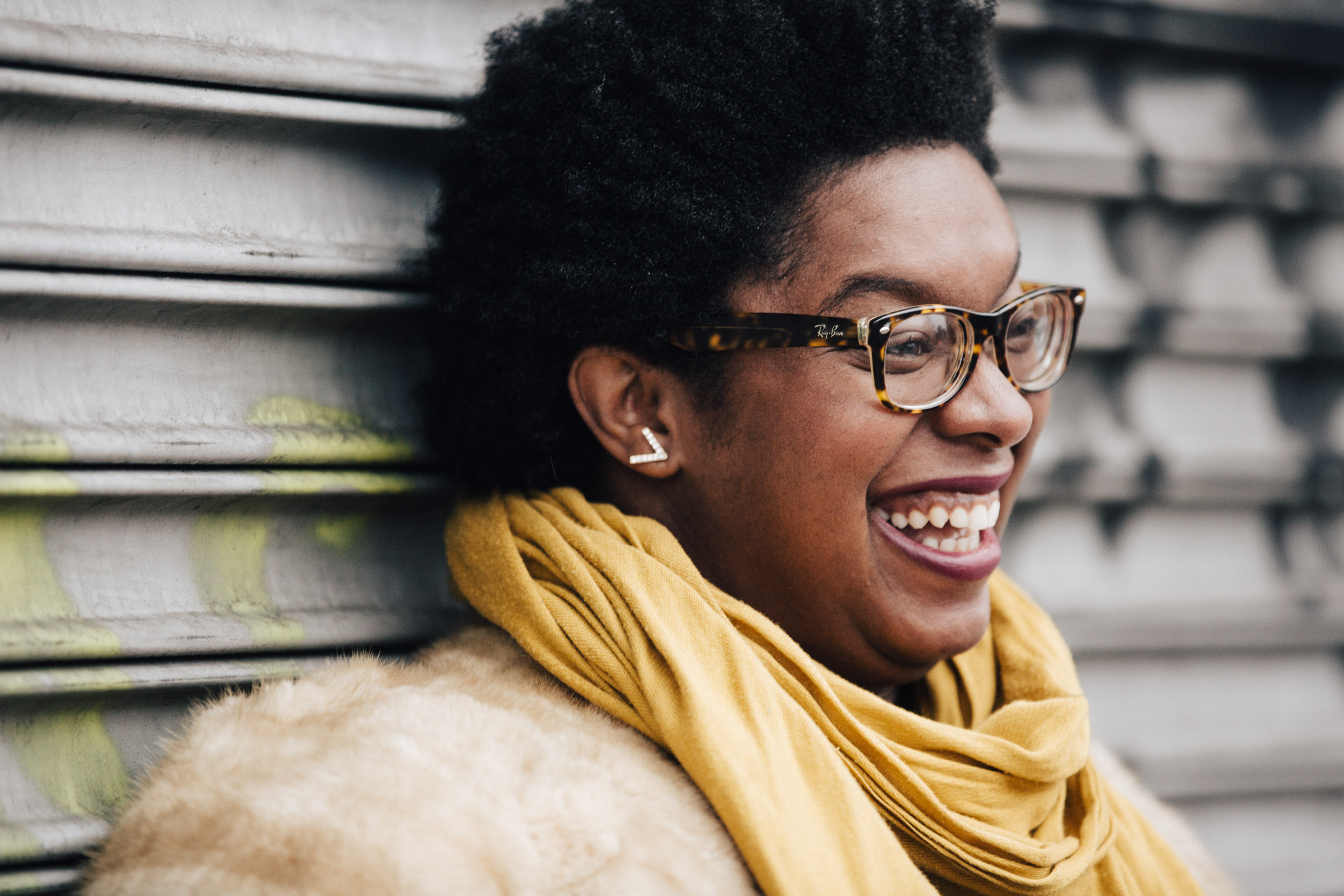
“Everyone is worthy of love, and we are all more than the worst thing we’ve ever done. Love can be expressed in so many different ways and forms, but, ultimately, cultivating love for yourself and the people around you will create a life worth living.”